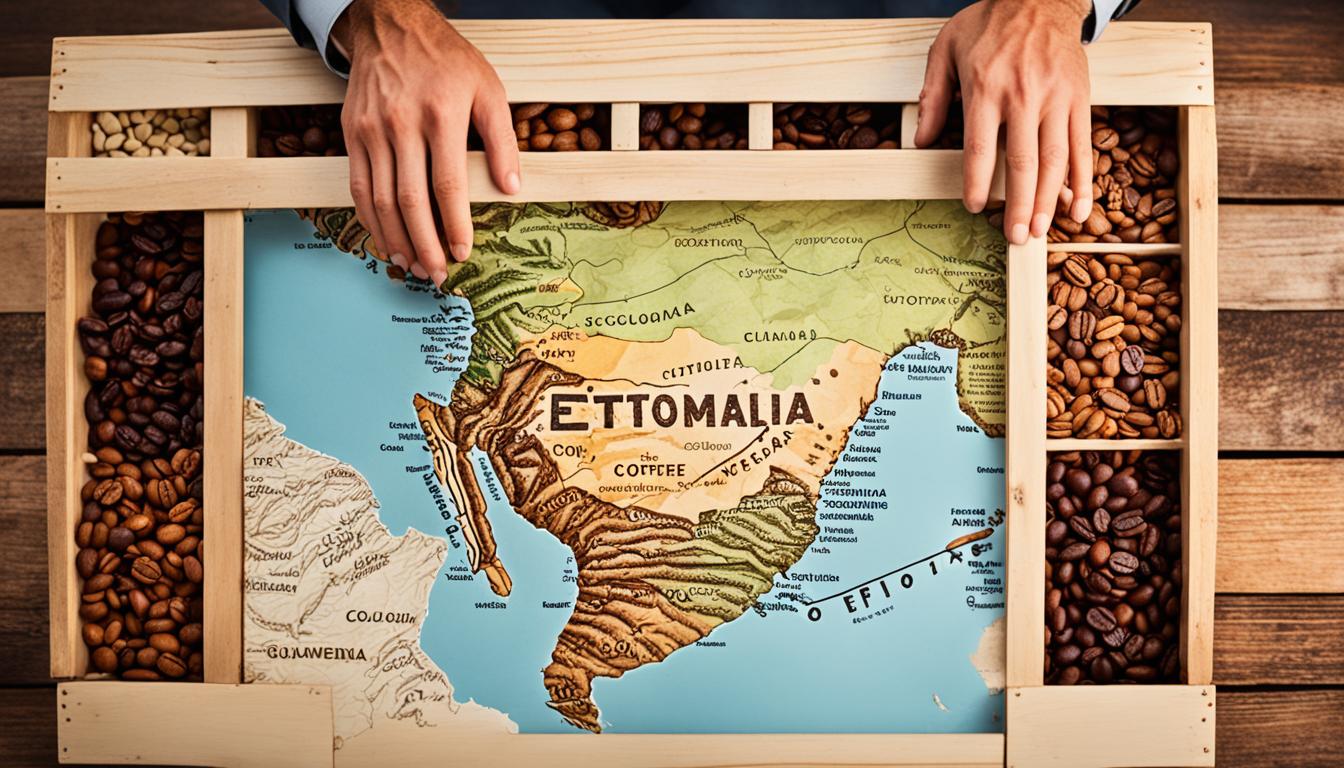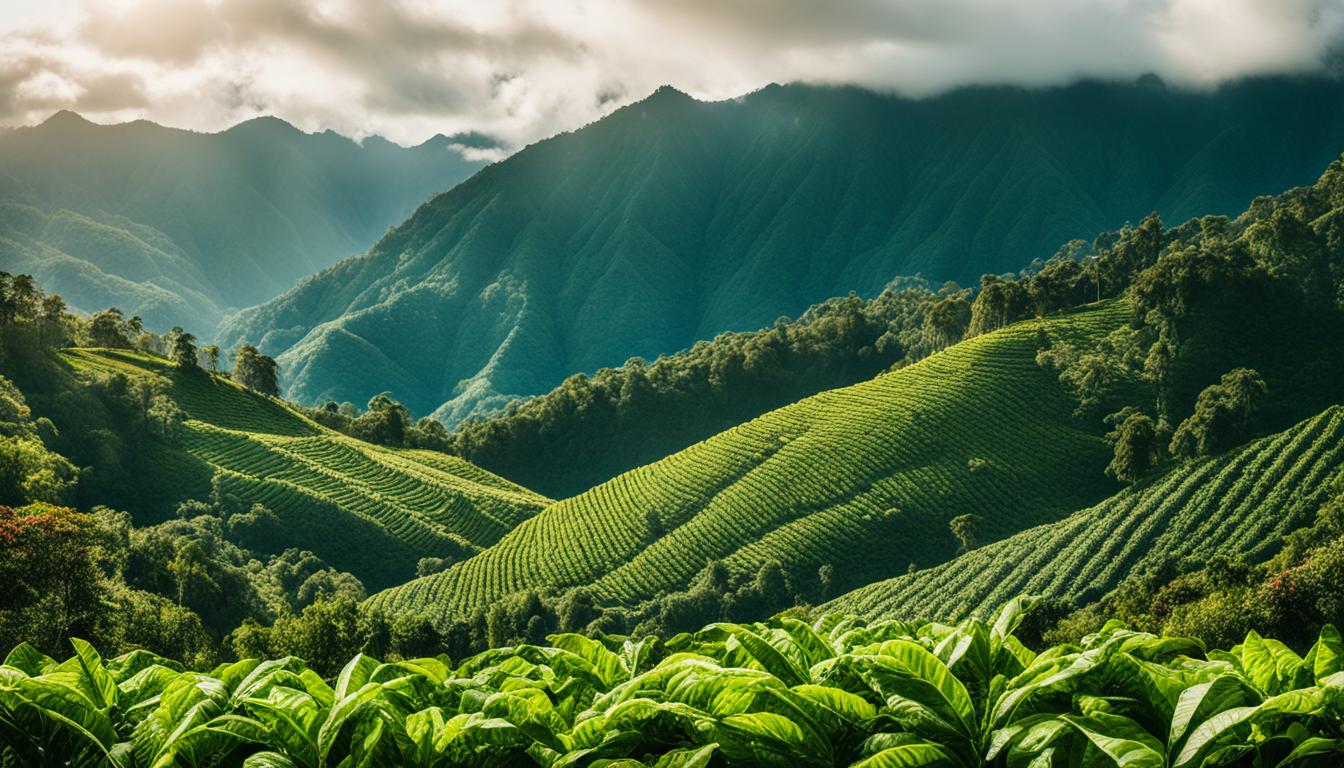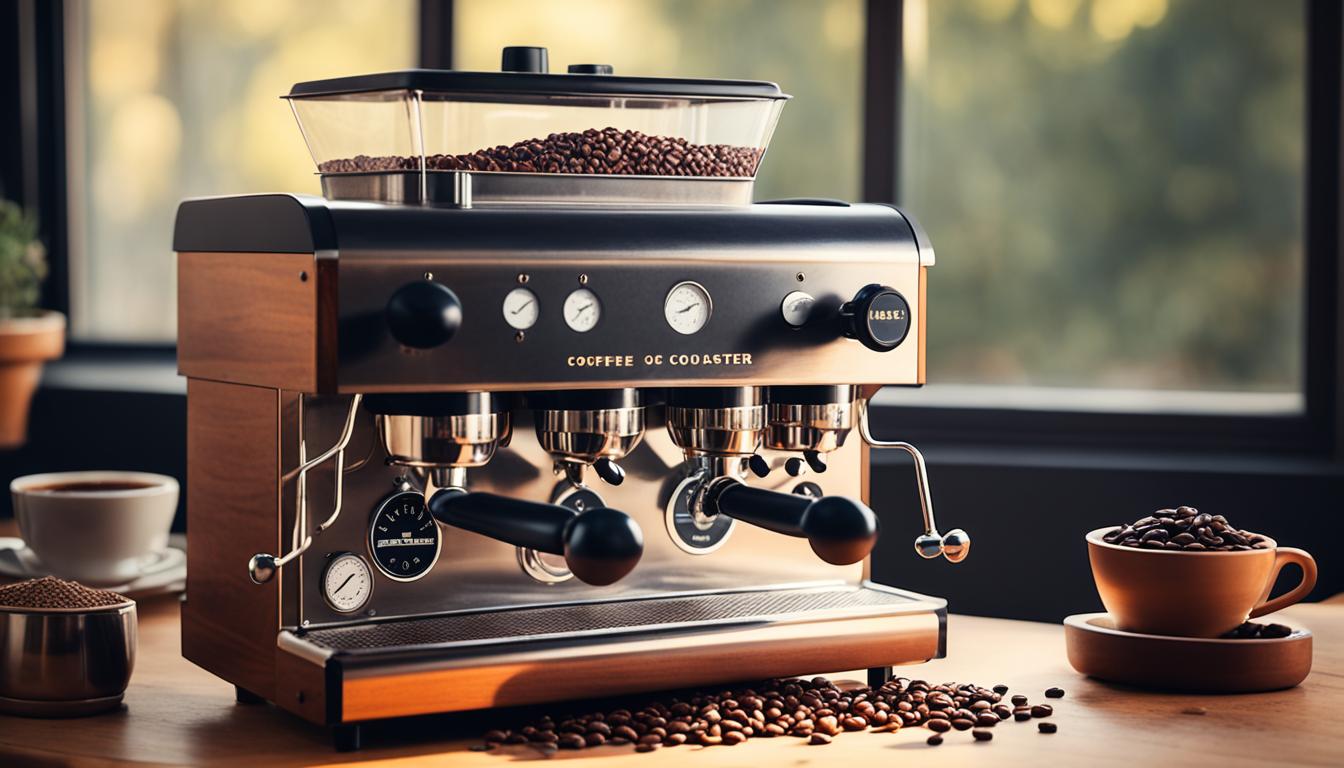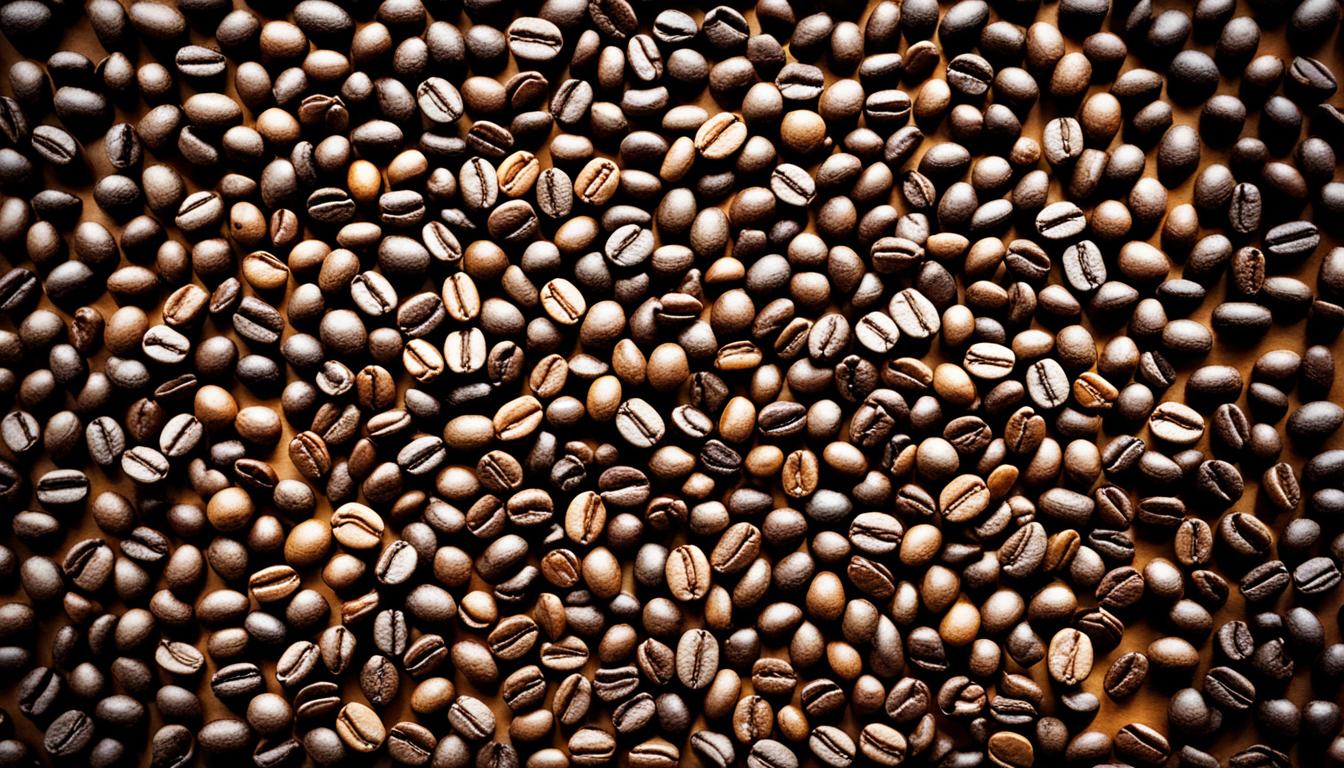Welcome to our guide on single-origin coffee! If you’re a coffee enthusiast looking to explore the world of specialty coffee origins and indulge in unique flavors, you’ve come to the right place. Single-origin coffee is a term that you may have heard before, but do you know what it really means? Let us explain!
Single-origin coffee refers to coffee beans that come from a specific geographic region or farm, making it distinct from blended coffee that combines beans from different locations. The origin of the coffee beans has a significant impact on the flavor and characteristics of the final cup of coffee. That’s why single-origin coffee has gained popularity among those who seek to appreciate the nuances and complexities of different coffee origins.
Key Takeaways:
- Single-origin coffee comes from a specific geographic region or farm.
- It is different from blended coffee, which combines beans from various locations.
- Specialty coffee origins are known for producing high-quality beans with unique flavor profiles.
- Understanding single-origin coffee is essential for coffee enthusiasts who want to appreciate different coffee origins.
- Exploring single-origin coffee allows you to discover the rich flavors and characteristics of specific regions or farms.
Now that we’ve covered the basics of single-origin coffee, let’s dive deeper into what exactly it means and how it differs from other types of coffee. Join us on this journey to explore the world of coffee origins and discover the extraordinary tastes that await!
What Does Single-Origin Coffee Mean?
Single-origin coffee is a term used to describe coffee beans that originate from a specific geographic region, farm, co-operative, or even a specific lot or paddock on a farm. Unlike blended coffee, which combines beans from multiple origins, single-origin coffee comes from a singular source.
The key defining factor of single-origin coffee is traceability. With single-origin coffee, we can know exactly where the coffee beans come from and be sure that they are not mixed with beans from other regions or farms. This traceability allows for a deeper understanding of the coffee’s profile and how it is influenced by the unique growing conditions and processing methods at its origin.
There are various types of single-origin coffee, each with its own distinct flavor profiles and characteristics. The specific origin and variety of the beans play a significant role in determining the taste and aroma of the brewed coffee.
For a better understanding, here is a detailed table showcasing some popular single-origin coffee types:
| Origin | Flavor Profile |
|---|---|
| Ethiopia | Fruity, floral, and wine-like |
| Colombia | Medium-bodied, balanced, and nutty |
| Brazil | Full-bodied, chocolatey, and nutty |
| Costa Rica | Bright, citrusy, and vibrant |
These are just a few examples, and there are many more single-origin coffee types available, each offering its own unique taste experience.
Now that we understand what single-origin coffee means and the different types available, let’s explore the rise of single-origin coffee in the next section to learn more about its increasing popularity and the benefits it offers.
The Rise of Single-Origin Coffee
Single-origin coffee has seen a surge in popularity, especially within the specialty coffee community. This trend is influenced by the growing appreciation for alternative brewing methods like pour overs and AeroPresses. As coffee enthusiasts seek a deeper understanding and connection with their brew, single-origin coffee provides a unique opportunity to explore the flavors and characteristics of coffee from specific regions or farms.
One of the key advantages of single-origin coffee is its higher level of traceability. Unlike blended coffee, which combines beans from various origins, single-origin coffee can be traced back to its specific source. This transparency allows consumers to understand the unique terroir and processing methods that contribute to the final cup of coffee. It provides a direct link between the coffee drinker and the farmer, fostering a sense of appreciation for the journey from bean to cup.
Furthermore, the rise of single-origin coffee has strengthened direct trade relationships between roasters and farmers. By sourcing coffee directly from specific regions or farms, roasters can engage in fairer and more sustainable practices. This ethical approach benefits both the farmers, who receive fair compensation for their efforts, and the consumers, who can enjoy coffee with a clear conscience. Moreover, these direct trade relationships often result in improved coffee quality, as roasters can work closely with farmers to ensure optimal growing and processing practices.
The benefits of single-origin coffee extend beyond ethical considerations. By exploring different single-origin offerings, coffee lovers have the opportunity to discover a wide range of flavor profiles. Each origin brings its own unique combination of soil, climate, and agricultural practices, resulting in distinct taste characteristics. From bright and fruity African coffees to rich and chocolatey Central American varieties, single-origin coffee offers a world of flavor possibilities to explore.
Embracing the rise of single-origin coffee not only allows us to experience the finest flavors that nature has to offer but also supports sustainable farming practices and ethical business models. By choosing single-origin coffee, we can actively contribute to the preservation of coffee diversity and the livelihood of farmers around the world.
The Quality of Single-Origin Coffee
When it comes to coffee, quality is paramount. Single-origin coffee consistently stands out as a top choice for coffee enthusiasts looking for an exceptional cup. The reason lies in the careful selection of beans based on their unique flavor characteristics, resulting in a truly remarkable experience.
To evaluate the quality of single-origin coffee, industry experts and organizations employ rigorous evaluation systems such as Cup of Excellence, Coffee Quality Institute Q, and Coffee Review. These systems utilize blind cupping and the renowned 100 point review system to meticulously assess the taste and overall quality of coffee.
With single-origin coffee, roasters are able to focus on a specific region or farm, enabling a more controlled and specialized production process. This attention to detail ensures a consistent and outstanding cup of coffee that captures the essence of its origin.
“The uniqueness and quality of single-origin coffee are a testament to the expertise and dedication of the roasters and farmers involved in its production.”
Specialty Coffee Roasters and Best Single-Origin Coffee
Across the globe, specialty coffee roasters are revered for their commitment to sourcing and showcasing the best single-origin coffees available. These roasters prioritize relationships with farmers and invest in sustainable practices to bring their customers extraordinary coffee experiences.
Through meticulous sourcing and roasting techniques, specialty coffee roasters curate a diverse selection of single-origin coffees that highlight the distinct flavor profiles inherent to specific regions and farms. This process enables consumers to explore a world of flavors, from the fruity and vibrant notes of Ethiopian coffee to the rich and chocolatey flavors of coffee from Colombia.
When it comes to finding the best single-origin coffee, consumers can trust specialty coffee roasters to provide an exceptional selection. These dedicated artisans are passionate about their craft and take pride in offering the finest quality coffee from around the world.
| Specialty Coffee Roaster | Origin | Flavor Profile |
|---|---|---|
| Blue Bottle Coffee | Various | Varies by origin |
| Intelligentsia Coffee | Various | Varies by origin |
| Stumptown Coffee Roasters | Various | Varies by origin |
| Counter Culture Coffee | Various | Varies by origin |
These are just a few examples of specialty coffee roasters that offer the best single-origin coffees. Each roaster’s selection may vary depending on seasonal availability and their commitment to sourcing from specific regions or farms.
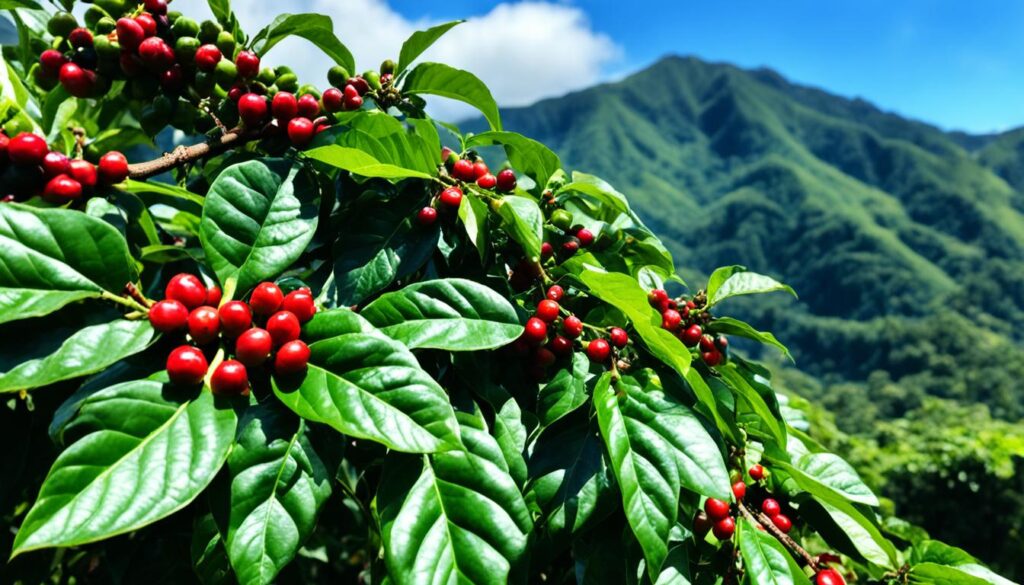
Choose single-origin coffee for an unparalleled coffee experience. Experience the exceptional flavors and stories behind each cup by exploring the offerings from specialty coffee roasters. Unlock the depth and quality of coffee like never before!
Conclusion
Single-origin coffee offers us, coffee enthusiasts, a unique and flavorful experience. The origin of the coffee beans plays a significant role in determining the taste and quality of the final cup of coffee.
By choosing single-origin coffee, we can explore different flavor profiles and enjoy the best quality beans from specific regions or farms. It allows for a deeper understanding of the coffee’s profile and a direct connection between us, the consumers, and the farmers.
Moreover, single-origin coffee supports ethical practices and sustainable business models by establishing direct trade relationships between roasters and farmers. This not only benefits the farmers but also leads to improved coffee quality and sustainability.
So, the next time we find ourselves at a café, let’s consider trying a single-origin coffee. We can uncover the rich flavors and unique story behind each cup while supporting ethical practices and enjoying the best quality beans. Single-origin coffee is the perfect choice for coffee enthusiasts who crave a truly exceptional coffee experience.
FAQ
What is single-origin coffee?
Single-origin coffee refers to coffee beans that come from a specific geographic region, farm, or co-operative. It can also refer to coffee sourced from a specific lot, paddock, or microlot on a farm. The key aspect of single-origin coffee is its traceability, meaning knowing exactly where the coffee is from and that it is not a blend.
Why is single-origin coffee important?
Single-origin coffee allows for a deeper understanding of the coffee’s profile and how it is influenced by the growing conditions and processing methods at its origin. It offers a unique and flavorful experience, allowing consumers to appreciate the nuances and complexities of different coffee origins. Single-origin coffee also supports direct trade relationships between roasters and farmers, leading to improved coffee quality and sustainability.
What types of single-origin coffee are there?
There are different types of single-origin coffee, depending on the specific origin and variety of the beans. Some common types include coffee from specific regions, farms, co-operatives, lots, paddocks, or microlots. Each type offers distinct flavor profiles and characteristics based on their unique growing conditions and processing methods.
Is single-origin coffee better quality than blended coffee?
Single-origin coffee is generally associated with higher quality because the beans are selected for their unique flavor characteristics. The quality of single-origin coffee is evaluated through industry evaluation systems, such as Cup of Excellence, Coffee Quality Institute Q, and Coffee Review. These systems assess the quality of coffee based on blind cupping and the 100 point review system. Single-origin coffee allows for a more focused and controlled production process, leading to a more consistent and exceptional cup of coffee.
Where can I find the best single-origin coffee?
Many specialty coffee roasters offer single-origin coffee options. These roasters carefully select high-quality beans from specific regions or farms to provide customers with the best single-origin coffee experience. To find the best single-origin coffee, you can explore local specialty coffee shops or online platforms that curate and sell a wide range of single-origin coffees.

